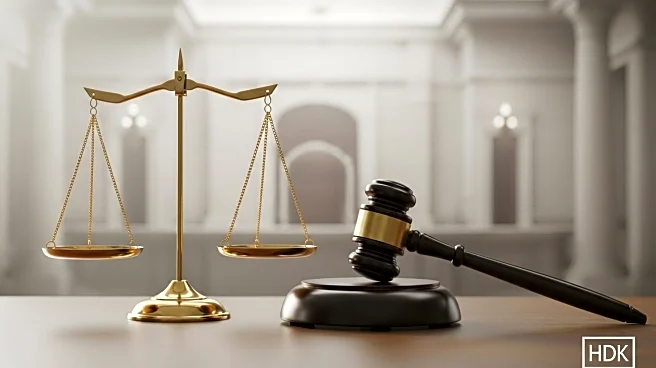What's Happening?
Eleven individuals deported from the United States to Ghana have initiated legal action against the Ghanaian government, claiming their detention in a military camp is unlawful. According to their lawyer, Oliver-Barker Vormawor, the deportees have not breached any Ghanaian laws, and their continued detention is unjustified. The lawsuit demands that the government present the detainees in court and provide a legal basis for their detention. This legal challenge arises amidst Ghana's acceptance of deportees under an agreement with the US, which has been criticized by opposition MPs for not being ratified by parliament. The deportations are part of the US government's stringent immigration policies under President Trump, who has pledged to increase deportations of undocumented migrants.
Why It's Important?
The lawsuit highlights the complex legal and diplomatic challenges associated with international deportation agreements. It underscores the tension between domestic legal standards and international agreements, particularly when such agreements are not ratified by legislative bodies. The case could impact future deportation deals between the US and other countries, potentially influencing immigration policy and international relations. The opposition's demand for parliamentary ratification reflects concerns over sovereignty and legal compliance, which could affect Ghana's political landscape and its relationship with the US.
What's Next?
The Ghanaian government is expected to respond to the lawsuit, which may involve court proceedings to determine the legality of the deportees' detention. The outcome could set a precedent for how deportation agreements are handled legally in Ghana and potentially influence similar cases in other countries. Political leaders and civil society groups may weigh in on the issue, potentially leading to public debates on immigration policies and international agreements.
Beyond the Headlines
The case raises ethical questions about the treatment of deportees and the responsibilities of governments in handling individuals returned under international agreements. It also highlights the broader implications of immigration policies on human rights and international diplomacy, particularly in the context of President Trump's administration's approach to immigration.









